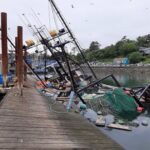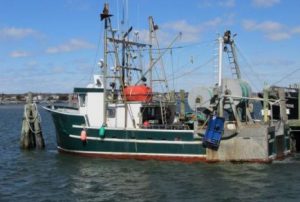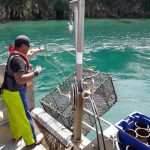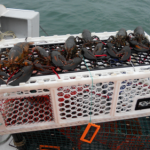Tag Archives: Maine Department of Marine Resources
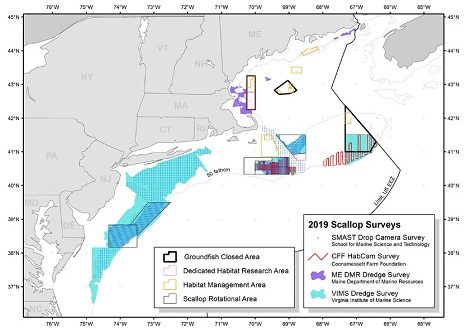
2019-2020 Sea Scallop Research Set-Aside Awards Announced
Northeast Fisheries Science Center and the New England Fishery Management Council (NEFMC) have selected 13 projects for awards through the Sea Scallop Research Set-Aside (RSA) Program. The awards are expected to generate more than $14 million; $2.8 million to fund research, and $11.4 million to compensate industry partners who harvest set-aside quota.,,, Among the research projects that will be supported this year are automated image annotation for optical scallop surveys, testing different scallop dredges for efficiency and performance, and development of a high-resolution model to assess the potential impact of offshore wind resource facilities on the regional fishery industry.>click to read<16:42
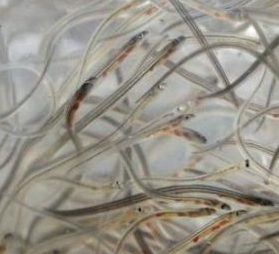
Maine elver season gets slower start, but values still above average
Maine’s elver fishery got its start on 22 March, and at two weeks in, the average price-per-pound is sitting well above historical averages. Maine’s elver fishery made headlines last year as the prices being paid for the baby eels hit historic highs, with some reporting getting prices of over USD 2,500 (EUR 2,225) per pound. Maine Department of Marine Resources landing statistics show that the fishery brought in USD 21.7 million (EUR 19.3 million) in 2018, with an average seasonal price of USD 2,366 (EUR 2,105) per pound, making it the second-most valuable fishery in the state behind lobster. >click to read<10:42
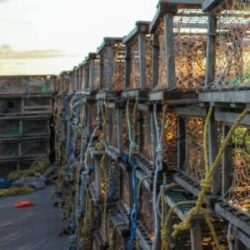
UNACCEPTABLE – Strict right whale protection goal raises concerns among lobstermen
Patrick Keliher, head of the Maine Department of Marine Resources, announced the proposed target at a conference of U.S. and Canadian lobstermen in Portland Friday while defending a decision to cancel three meetings with Maine fishermen to talk about looming right whale protections.,,, The National Marine Fisheries Service estimates that fishing rope entanglement kills or seriously injures five to nine right whales a year,… A few minutes later, Keliher got an email from the fisheries service that spelled out its risk reduction target. Frustrated, he stood up and delivered apparent bad news – he told an already exasperated audience that the service now wanted a 60 percent to 80 percent reduction in the size of the lobster fishery. The room erupted with anger. >click to read<22:49
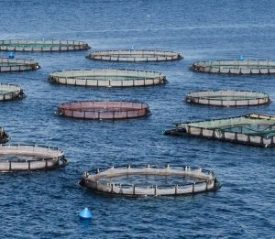
Lobstermen petition state to tighten aquaculture rules, want a moratorium on large aquaculture leases
A wave of aquaculture operations has swept along the coast in the last few years, sparking concerns from some about waterfront access, aesthetics and interference with other commercial fisheries. “I’m here to let the Department of Marine Resources know that their system of granting aquaculture leases is broken or even worse, non-existent, as far as it pertains to the commercial lobstermen in this state,” said John Powers, a lobstermen who has fished around Brunswick for 40 years, at a press conference in the State House Wednesday. >click to read<12:24
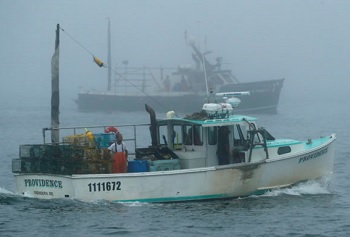
Despite a banner year, looming bait crisis leaves plenty of Maine lobstermen anxious
Patrice McCarron, executive director of the Maine Lobstermen’s Association, is worried about the severity of herring restrictions imposed by the federal government after the species failed to reproduce in sustainable numbers last year. “It’s about as bad as we can imagine, but we don’t yet know what it’s going to translate to for the fishermen,” McCarron said. McCarron said that Maine fishermen face a shortage of some 50 million pounds of bait in the coming season. “We’re seeing an 84 percent reduction in that particular source of bait, so we’ll have less than 5,000 metric tons, which will probably be caught in a week, in one week,” she said.>click to read<12:04
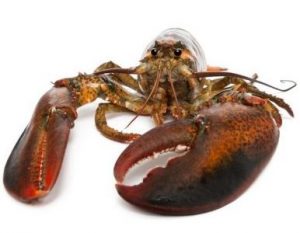
Congrats to Maine’s Lobstermen Who Smashed Previous Year’s Catch By 8 Million Pounds
Maine lobstermen brought more than 119 million pounds (54 million kilograms) of the state’s signature seafood ashore last year, an increase that helped to propel the total value of Maine’s seafood to the second-highest value on record, state officials said. The value of the 2018 lobster catch was more than $484 million, and the total value for all Maine seafood was more than $637 million, according to the Maine Department of Marine Resources. >click to read<11:13
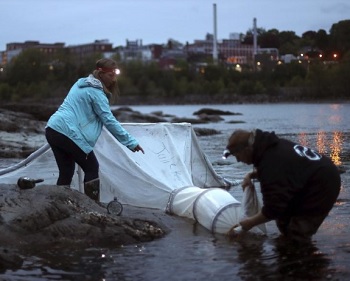
New controls in Maine to prevent poaching of valuable eels
Maine’s lucrative baby eel industry will likely face tighter controls this year designed to thwart poaching, as officials consider requiring state law enforcement officers to oversee the packing and shipping,,, This year, the Maine Department of Marine Resources is looking to add a requirement that elver exporters in the state must notify the Maine Marine Patrol 48 hours before preparing to pack and ship the eels. The officer will witness the weighing and packing,,, >click to read<11:22

Record Lobster Production Defies Alarmist Climate Scare
Marine fisheries data show New England lobstermen are benefiting from a new golden age of lobster, thanks in large part to a warming Earth. Yet Democrats in Congress and even lobster lobbyists asserted in House climate hearings earlier in February that global warming is causing a lobster apocalypse. Thankfully, facts and scientific evidence can help us put this latest global warming scare to rest. On February 7, Democrats in the House Natural Resources Subcommittee on Water, Oceans, and Wildlife held hearings with the purpose of raising concern about global warming. >click to read<14:33
Subcommittee Hearing: Healthy Oceans and Healthy Economies: The State of Our Oceans In the 21st Century – Video, >click to watch<
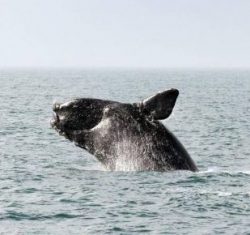
Whale rule changes coming on two tracks
Maine lobstermen and their representatives, along with state fisheries regulators, continue in the trenches of debates about how much the Maine lobster fishery is implicated in the decline of the North Atlantic right whale. Ongoing efforts to protect the whales from entanglement with fishing gear may result in two different new sets of regulations, Sarah Cotnoir, resource coordinator for the Maine Department of Marine Resources, and Patrice McCarron, executive director of the Maine Lobstermen’s Association, told the Zone B Council last week. >click to read<11:03
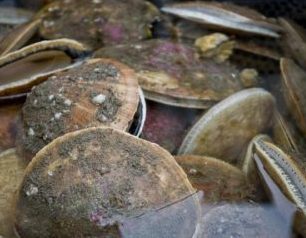
Maine scallop fishery, a conservation success story, to start for the winter
The state’s rebuilt fishery for scallops, which runs from November to April, is getting started for the winter in the coming days. Many in the state’s seafood industry consider Maine scallops a conservation success story, as the fishery collapsed in the mid-2000s and slowly rebuilt to the point where fishermen last year collected the highest total since 1997. >click to read<18:45
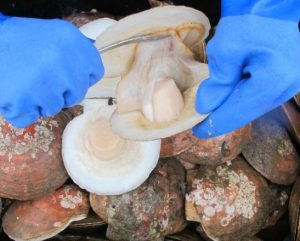
Maine: 1,300 fishermen wanted first new scallop licenses since 2009. Only four got them.
The state has chosen four fishermen from eastern Maine from almost 1,300 applicants who sought the first new scallop fishing licenses to be issued in Maine in the past nine years. The Maine Department of Marine Resources held a lottery this week to determine who among the nearly 1,300 applicants would be allowed into the lucrative scallop fishery this coming winter. >click to read<08:22
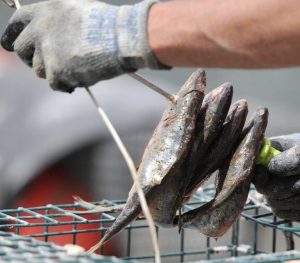
Regulators moving to ban exotic bait that could threaten lobster fishery
The American Lobster Management Board took a first step toward adopting regional bait safety rules, voting Monday to develop a resolution to prohibit the use of exotic baits that could introduce disease, parasites or invasive species to East Coast waters.,, The board – which is part of the Atlantic States Marine Fisheries Commission – agreed to develop a bait safety resolution based on Maine’s rules that all lobstering states would enact by 2020 – a quick but voluntary fix. >click to read<09:36
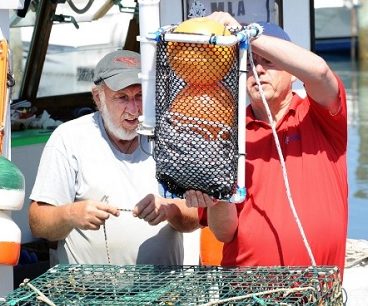
Ropes are latest flashpoint in tug of war over right whales
The lobster industry is willing to consider switching to weaker rope to protect the endangered right whale from deadly entanglements, but whale defenders say that doesn’t go far enough to help a species that can’t bear even one more death. A team of scientists, regulators, animal rights groups and fishermen met this week in Providence to review proposals,,, The team is advising the National Marine Fisheries Service on how to prevent whales from getting entangled in fishing gear as they migrate, feed and mate as they travel back and forth along the East Coast of the United States and Canada. >click to read<11:54

Lobster industry blasts proposed regulations intended to protect whales
Maine officials and members of the state’s lobster industry are blasting a new federal report on the endangered right whale, claiming it uses old science to unfairly target the fishery for restrictions.
The Maine Department of Marine Resources, the agency that regulates the $434 million lobster fishery, and the Maine Lobstermen’s Association, the trade group representing Maine’s 4,500 active commercial lobstermen, question the scientific merits of the report from the Northeast Fisheries Science Center, which was issued in advance of next week’s meeting of a federal right whale protection advisory team. “They’re painting a big target on the back of the Maine lobster industry, but the picture isn’t based on the best available science,” DMR Commissioner Patrick Keliher said Thursday. >click to read<09:34
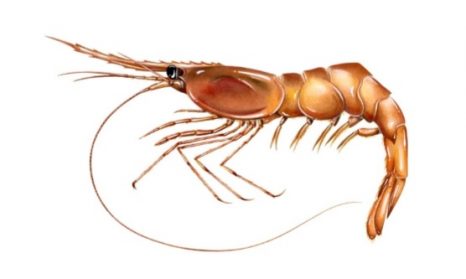
Northern Shrimp: Maine fishermen demand better science before canceling another shrimp season
Members of the Atlantic States Marine Fisheries Commission will meet Thursday in Portland to review the most recent stock assessment and make recommendations on whether Maine will see a shrimp season next year for the first time since 2013.“Spawning stock biomass and total abundance remain low, with little sign of recovery,” Toni Kerns, an ASMFC fishery management plans coordinator, wrote in an email about the shrimp population in the Gulf of Maine.,, But Maine’s shrimp fishermen, facing a sixth consecutive barren season, are calling the survey process by the ASMFC a “sham” and say the entire process to measure the recovery of Maine shrimp should be overhauled. >click to read<08:37
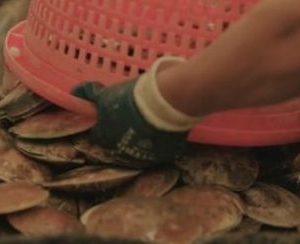
Maine’s rebuilt scallop fishery looks to year of more growth
Maine is known for producing scallops that are somewhat bigger than other East Coast states, and some are plucked from the icy waters by hand during winter. Others are harvested by boats with fishing gear. The Maine Department of Marine Resources has said strict management of the harvest has allowed the scallops to rebuild from collapse in the mid-2000s. The state is looking to continue that trend this year with a season that keeps fishermen restricted to tight limits on the number of pounds they can harvest. Fishermen are also limited in the number of days they can fish, and the state is looking to trim a few days. >click to read<10:19

With Trap War Brewing, Maine Department Of Marine Resources Implements Limits For Lobster Trawls
The Maine Department of Marine Resources (DMR) is imposing a new five-trap limit for lobster trawlers in an area around Mt. Desert Rock, about 6 miles off Frenchboro. The limit will go into effect starting in October.,,, “I’m troubled when an industry creates conflicts among themselves, and we couldn’t work it out, and to me it’s one of the problems with the zone system,” said Keliher. “You have more effort in [Zone] C, and that effort needs a place to go, and they are moving into other areas. That creates a trap-density problem, and as soon as you have a trap-density problem, you have social problems. And those sometimes lead to enforcement problems.” >click to read<12:52

Maine DMR sets up lottery for new scallop licenses
This week, the Maine Department of Marine Resources (DMR) announced the final terms for two newly established lotteries for scallop fishing licenses. One lottery is for dragger licenses, the other for diver licenses. The catch, though, is that nobody knows for sure how many licenses, if any, will be available each year. DMR has been working for more than a year on a plan to bring new entrants into the scallop fishery. The lotteries announced this week are the culmination of extensive discussions last year among members of DMR’s Scallop Advisory Council with considerable input, often heated, from industry members. >click to read<09:09
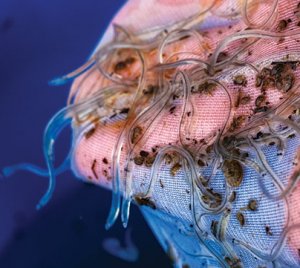
Elver fishermen push for higher quota, say resource isn’t endangered
Despite the abrupt end to the elver season last month due to poaching, elver fishermen continue to support an increase in Maine’s annual catch limit. The Bangor Daily News reported that more than 60 elver fishermen appeared at a hearing held Wednesday by the Atlantic States Marine Fisheries Commission — the interstate body that oversees the eel and elver fishery, among others — to consider whether to raise the quota from 9,688 pounds to 11,749 pounds. >click to read<13:47
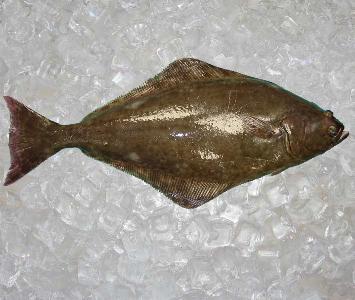
Maine: New halibut rules aim to keep fishery open
The Maine Department of Marine Resources has reminded harvesters with an Atlantic halibut endorsement of new state regulations designed to keep the state compliant with federal rules. The new state rules, enacted in April as emergency regulations and scheduled to become permanent in June, are designed to prevent state licensed harvesters from exceeding the allowable catch limit in state waters and contributing to an overage for the combined state and federal fishery. >click to read<10:26
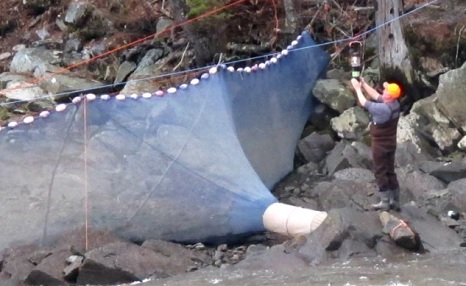
With 3 weeks to go in season, Maine’s baby eel harvest tops $20M
The value of landings so far in Maine’s 2018 baby eel fishing season have topped $20 million, the fishery’s highest annual value since the state adopted a statewide catch limit in 2014. Record prices this season of around $2,500 per pound for baby eels, also known as elvers, already have made the 2018 season the third-most valuable ever in Maine. Over the past four years, the highest annual landings total for the state’s baby eel fishery, which lasts from late March through early June, is $13.4 million in 2016. According to Maine Department of Marine Resources, as of Wednesday evening fishermen had caught 8,416 pounds, or 87 percent of Maine’s annual catch limit of 9,688 pounds. >click to read<12:44
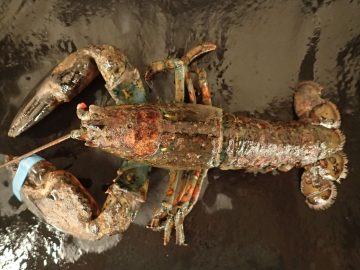
Lobster shell disease nudges up slightly off of Maine
A disease that disfigures lobsters has ticked up slightly in Maine in the last couple of years, but authorities and scientists say it’s not time to sound the alarm. The disease, often called epizootic shell disease, is a bacterial infection that makes lobsters impossible to sell as food, eating away at their shells and sometimes killing them. The Maine Department of Marine Resources said researchers found the disease in about 1 percent of lobsters last year. >click to read<16:41
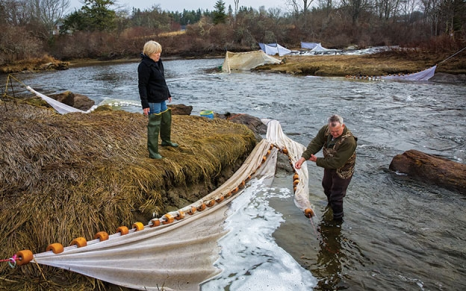
Elver run looks good, prices up over last year
Since the start of the elver season on March 22, the spring run has been picking up and landings are looking good. The Ellsworth American reported that dealers paid an average price of $2,747 per pound the first week of the harvest for elvers, which are bought by eel farmers in Asia. Elvers are by far Maine’s most valuable fishery per pound, but the catch is limited by a quota, so in terms of sales revenues it’s one of the least valuable in the state. According to the Maine Department of Marine Resources, elver landings among non-native harvesters reported as of 6 p.m. on April 7 totaled 581.7 pounds out of an overall quota of 7,566.3 pounds. >click to read<15:29

Price offered for Maine’s baby eels hits record high
Strong demand for baby eels from Maine, spurred by poor winter harvests elsewhere around the globe, has driven prices in the opening days of the state’s annual fishing season to unprecedented heights. The average price offered to fishermen for their baby eels, also known as elvers, since the season began at noon last Thursday is between $2,700 and $2,800 per pound, according to Maine Department of Marine Resources. That’s the highest average price range ever reported by the state agency and more than double the $1,302 per pound that Maine fishermen averaged over the course of the 2017 season. >click to read<09:07
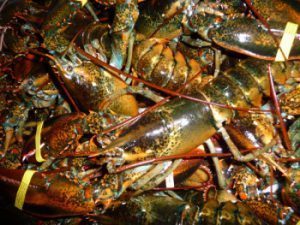
Our View: Time for Maine to look past lobster boom years
There is an economic principle that’s usually attributed to Herbert Stein, who worked for the Nixon administration and The Wall Street Journal. Stein’s law: If something can’t keep going forever, it won’t. Maine’s lobster industry is near the peak of a historic boom, making it the state’s most lucrative fishery. In the last 30 years, lobster landings have increased from 20 million pounds a year to 130 million. No one expects the catch to keep growing forever. The question is not whether it will decline, but when. >click to read< 13:57
Gulf of Maine had cool year in 2017, but is still warming – >click to read<
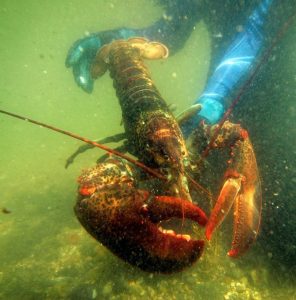
State disputes study that predicts sharp decline in Gulf of Maine lobster population
The state agency that oversees Maine’s marine fisheries is questioning the reliability of a new study that predicts a sharp decline in Gulf of Maine lobsters over the next 30 years. The Gulf of Maine Research Institute, the University of Maine and the National Oceanic and Atmospheric Administration built a computer model that predicts the population will fall 40 to 62 percent by 2030. But Patrick Keliher, commissioner of the Department of Marine Resources, won’t be using the model to help him decide how to manage the state’s most valuable fishery,,, >click here to read< 01:06 
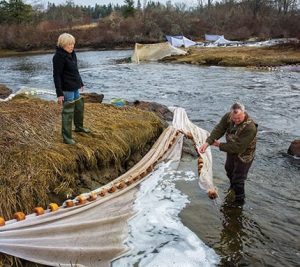
Hitting the Elver License Lottery! Handful of lucky Mainers win right to apply for lucrative elver licenses
In the first lottery since 2013 in the lucrative elver fishery, the Maine Department of Marine Resources awarded the right to apply for an elver license to 11 Mainers. 3,136 people applied for the licenses. The lottery, authorized during the past legislative session, was available to Maine residents who are at least 15 years of age by the start of the 2018 season, and who are eligible to purchase an elver license in 2018 because they have not had their right to obtain an elver license suspended. >click here to read< 12:40 

Maine Department of Marine Resources Launches Online Elver License Lottery Application
Maine’s Department of Marine Resources is pleased to announce the launch of the online Elver License Lottery application, which is available to residents of Maine. Available at www.maine.gov/elverlottery, the system allows applicants to submit their name for a chance to win an elver license. The online application was created by the Department of Marine Resources, in partnership with the state’s digital government portal provider, InforME. The rising market prices of these young eels have gained the attention of existing commercial fisherman and anyone interested in applying for these coveted licenses. >click here to read<09:29

Body of Paul Brenner who went missing during blizzard found
The body of Paul Benner, who went missing Thursday while clamming, has been found according to Marine Resources who has been spearheading the search. Benner’s body was found in Long Cove by Marine Patrol Officers using side scan sonar. The body was recovered using a dive team and will be taken to the Medical Examiner’s office. click here to read the story 16:47




































